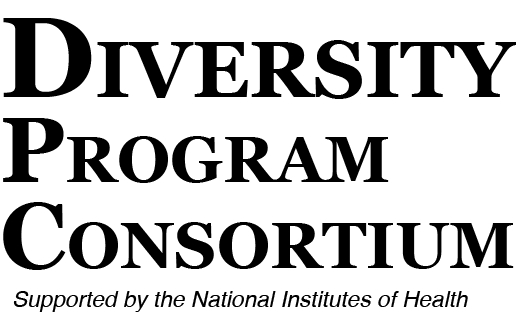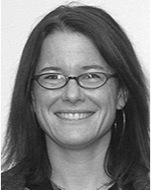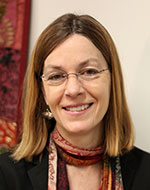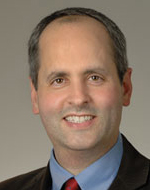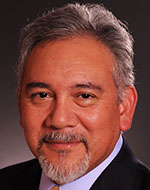The NIH has long recognized that achieving diversity in the biomedical, behavioral, clinical, and social sciences (collectively termed "biomedical") research workforce is critical for ensuring that the most creative minds have the opportunity to contribute to realizing our national research and health goals. The nation's population continues to become increasingly diverse and there is an urgent need to ensure that the scientific talent which is key to our nation's success is nurtured, recognized, and supported across all demographic groups. The NIH expects efforts to diversify the workforce to lead to recruitment of talented researchers from all groups; to improve the quality of the training environment; to balance and broaden the perspective in setting research priorities; to improve the ability to recruit subjects from diverse backgrounds into clinical research protocols; and to improve the Nation's capacity to address and eliminate health disparities.
A fundamental shift in the way scientists are trained and mentored needs to occur to attract and retain individuals from underrepresented groups in the scientific workforce. This program is a national collaborative through which the Diversity Program Consortium, in partnership with the NIH, will develop, implement, and determine the effectiveness of innovative approaches to strengthen institutional capacity to engage individuals from diverse backgrounds and help them prepare for and succeed in biomedical research careers, providing a unique opportunity to understand and address multi-dimensional factors (at the institutional, social, and individual levels) that may strongly influence student success, professional development, and persistence within biomedical research career paths. It will build upon and move beyond existing programs and paradigms to support transformative approaches to student engagement, research training, mentoring, faculty development, and infrastructure development. Transformation is expected to occur at awardee institutions, but broader transformative impact will result from dissemination of lessons learned to enable nationwide adoption of effective strategies.
The program consists of three highly integrated initiatives dedicated to investigating what training experiences work in various contexts. The Consortium is collectively determining hallmarks of success, including academic as well as psychosocial competencies, at each phase of the biomedical career pathway, develop approaches to enable young scientists to meet these hallmarks, test the efficacy of these approaches, and adjust approaches during the course of the program to maximize impact. Finally, the Consortium will disseminate lessons learned to enable adoption of effective approaches by institutions nationwide.
Mercedes Rubio, Ph.D., is a program director in the Division of Training, Workforce Development, and Diversity, where she primarily oversees Research Supplements to Promote Diversity in Health-Related Research and Supplements to Promote Re-entry into Biomedical and Behavioral Research Careers.
Michael Sesma, Ph.D., is chief of the Postdoctoral Training Branch in the Division of Training, Workforce Development, and Diversity, where he oversees postdoctoral programs for research training, postdoctoral fellowship, career development programs, as well as the Innovative Programs to Enhance Research Training (IPERT) and workforce modeling programs.
Allison Scott, Ph.D., is a program leader in the Division of Training, Workforce Development, and Diversity, where she coordinates the activities of the NIH Common Fund’s Diversity Program Consortium, which includes the Building Infrastructure Leading to Diversity (BUILD), National Research Mentoring Network (NRMN) and Coordination and Evaluation Center (CEC) initiatives. Before joining NIGMS, Dr. Scott was a program leader performing similar functions in the NIH Office of the Director’s Office of Strategic Coordination.
Pamela Thornton, Ph.D., is a program director in the Division of Training, Workforce Development, and Diversity, where she primarily oversees the Building Infrastructure Leading to Diversity (BUILD) initiative.
Dr. James is responsible for informing the public about issues related to maternal and child health disparities; developing scientific leadership and initiatives in colleges and universities worldwide that will encourage, facilitate, and increase participation of diverse populations and developing nations in biomedical and behavioral research endeavors; disseminating evidence based research findings that will ultimately eliminate differences in health outcomes.
Dr. Aguila plays a central role in the strategic planning, priority-setting, development, and management of Center to Reduce Cancer Health Disparities’ disparities research, diversity training, and community education/outreach efforts.
Dr. Banks specializes in research, training and technical assistance with over two decades of experience supporting health and human service organizations nationwide.
Dr. Broughton is the Program Director, Division of Training, Workforce Development, and Diversity. She administers the Research Initiative for Scientific Enhancement, a development program for students from underrepresented groups.
Darren Sledjeski, Ph.D., is chief of the Genetic Mechanisms Branch in the Division of Genetics and Developmental Biology, where he administers research grants in the areas of transcription mechanisms and symbiotic relationships and community ecology.
Dr. Lorsch oversees the Institute's $2.366 billion budget, which supports basic research that increases understanding of biological processes and lays the foundation for advances in disease diagnosis, treatment and prevention.
Mr. Rosenzweig is a Grants Management Specialist with the BBCB/TWDD grants management team of the National Institute of General Medical Sciences (NIGMS). He joined the NIGMS in 2004 and manages the business and fiscal aspects of a portfolio of grants from the diversity/training programs supported by the Institute (the TWDD division) and the Division of Biomedical Technology, Bioinformatics, and Computational Biology (BBCB). Mr. Rosenzweig holds a BA in Political Science from the University at Albany, SUNY and a MPA from the American University in Washington, DC.
Diane Adger-Johnson is a Health Science Program Officer in the National Institute of Allergy and Infectious Diseases (NIAID), Division of Extramural Activities (DEA), Office of Research Training and Special Programs (ORTSP). She is responsible for the management and oversight of various research training grants, diversity programs, minority health and health disparities reporting, and outreach coordination for the institute in areas related to student mentoring, training, and entry into biomedical research.
Dr. Etz is a Health Science Administrator in the Epidemiology Research Branch and Chair of the American Indian and Alaska Native Coordinating Committee for NIDA. Her program area includes studies of population and clinical epidemiology in adolescents and early adults; psychological, familial and environmental risk and protective factors and processes and how these interact in the development of drug abuse; and the sequencing and temporal potency of risk factors that affect the development of substance abuse. The program also supports epidemiologic research studies examining the social, cultural, environmental and historical factors related to drug use among American Indians and Alaska Natives as well as a more general focus on epidemiology and health disparities. In addition, the program includes a focus on data sharing and the support of a behavioral and social science drug abuse and HIV data archive. Dr. Etz received her PH.D. in Human Development from the University of North Carolina, Greensboro. Prior to joining NIDA, she completed a postdoctoral fellowship at the Prevention Research Center, University of Kentucky. Dr. Etz has served on the Board of Directors for the Society for Prevention Research (SPR) as well as the SPR Training Committee.
Kaneisha Akinpelumi is the Diversity Program Consortium’s Grants Management Coordinator. Previously, she served as a Grants Policy Analyst in the Office of Policy for Extramural Research Administration (OPERA) at NIH and as a Grants Management Specialist at the National Institute on Minority Health and Health Disparities (NIMHD). Prior to joining the NIH staff, Kaneisha had prior federal experience as a grants management specialist and served in various other capacities administering grants and contracts. She possesses over 13 years of experience in grants management and has extensive knowledge of federal grant regulations and OMB circulars. Kaneisha holds a BA in Sociology from Dillard University and MSW from the University of Pennsylvania.
Anissa Brown, Ph.D., is a program director in the Division of Training, Workforce Development, and Diversity. In this position, she is a program officer for the Building Infrastructure Leading to Diversity (BUILD) Initiative, and oversees Predoctoral Fellowships to Promote Diversity in Health-Related Research and the Research Initiative for Scientific Enhancement (RISE) program. Formerly, she was an acting health science administrator and program analyst in the Office of AIDS Research of the NIH Division of Program Coordination, Planning, and Strategic Initiatives. Brown earned a B.A. in biological sciences and psychology and a Ph.D. in biology from the University of Delaware.
Kenneth Gibbs, Ph.D., is a program director in the Division of Training, Workforce Development, and Diversity, where he handles the Predoctoral MD/PhD or Other Dual-Doctoral Degree Fellowships for Students at Institutions Without NIH-Funded Institutional Predoctoral Dual-Degree Training Programs (F30), Postbaccalaureate Research Education Program (PREP) and oversees predoctoral T32 biostatistics grants. In addition to serving as the project scientist for the Coordination and Evaluation Center, Gibbs also manages research grants in the Division of Genetics and Developmental Biology, and interacts with trainees through the Postdoctoral Research Associate (PRAT) Program. Gibbs earned a B.S. in biochemistry and molecular biology from the University of Maryland, Baltimore County, a Master of Public Health from Johns Hopkins University and a Ph.D. in immunology from Stanford University, where he also conducted postdoctoral research.
Desirée Salazar, Ph.D., is a program director in the Division of Training, Workforce Development, and Diversity. She administers Innovative Programs to Enhance Research Training and Building Infrastructure Leading to Diversity (BUILD)? grants. Salazar also manages Research Supplements to Promote Diversity in Health-Related Research and Research Supplements to Promote Re-entry into Biomedical and Behavioral Research Careers program. She earned a B.S. in neuroscience from the University of California, Los Angeles, and a Ph.D. in biological sciences from the University of California, Irvine. Salazar conducted postdoctoral research and was an IRACDA fellow at the University of California, San Diego.
Christa Reynolds is a communication editor for the Diversity Program Consortium (DPC) at the National Institute of General Medical Sciences. She focuses on expanding the DPC’s external outreach and fulfilling reporting needs. Reynolds has a B.A. from the University of Chicago in international studies, and M.A.s in journalism and in Latin American studies from the University of Arizona.

